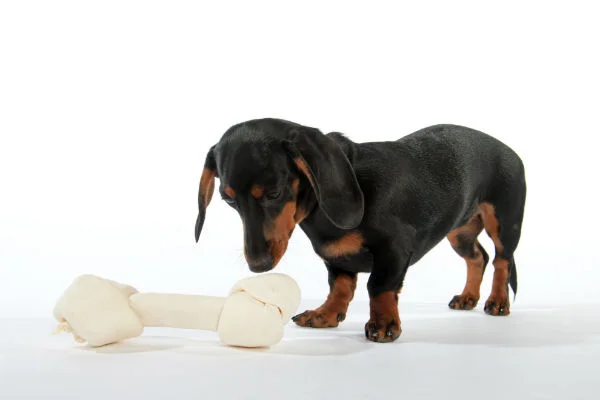
Rawhide chews are a well-loved treat for dogs, but they come with certain safety concerns. These chews can pose choking and intestinal blockage risks, so it’s crucial to supervise your pet during chew time. You want the best for your furry friend, but it’s essential to ensure that their chew toys are safe. Rawhide chews have been a traditional choice, often seen as safer than hard plastic toys.
Rawhide chews, made from animal hides like cow or horse hides, undergo a process involving cleaning, cutting, and shaping into chewable forms for dogs. Some varieties even come flavored to make them more appealing.
Are Rawhide Chews Safe for Dogs? However, it’s crucial to ask whether rawhide chews are safe for dogs. There are potential safety risks associated with these chews:
1. Digestive Issues: Rawhide chews are not readily digestible, which means they may not always break down in a dog’s digestive system. If a dog manages to chew off a substantial piece, it can lead to digestive problems and possible intestinal blockages.
2. Choking Hazard: Rawhide chews can become soft and break into smaller pieces as dogs chew on them, presenting a choking hazard, particularly for dogs that chew aggressively.
3. Chemicals: During production, rawhide chews may undergo treatments involving chemicals and bleaching agents. These chemicals can be harmful if ingested.
4. Extra Calories: Rawhide chews contain calories, and excessive consumption can lead to weight gain and potential health issues in dogs.
Benefits and Risks of Rawhide Chews: Rawhide chews offer some advantages, such as providing mental stimulation and aiding dental health. However, it’s vital to balance these benefits with the potential risks they pose to your dog.
Alternatives to Rawhide Chews: If you’re concerned about the risks associated with rawhide chews, consider these alternatives to fulfill your dog’s chewing needs:
1. Carrots: Crunchy carrots are a healthy snack that offers satisfying chewing experiences for dogs.
2. Bully Sticks: Bully sticks are a favorite among dogs and are more easily digestible. However, they can be calorie-rich and emit a strong odor.
3. Yak Cheese: Himalayan yak cheese is a hard and long-lasting chew treat, reducing choking hazards compared to rawhide chews.
4. Other Mental Stimulation Toys: Utilize toys like treat-dispensing toys, snuffle mats, and lick mats to provide mental stimulation for your dog while addressing their chewing instincts.
Regardless of the chew or toy you choose, it’s essential to monitor your dog during playtime to ensure their safety. Select the right-sized chews based on your dog’s size and chewing habits. If you have concerns about your dog’s chewing habits or dietary requirements, consult your veterinarian to find the best options for your pet’s health and well-being.